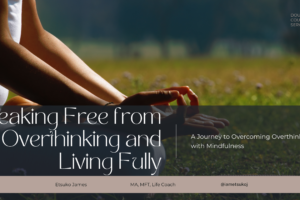Common Unhealthy Thoughts 
Some common negative thoughts that many people have on a daily basis, and some that might even occupy your brain at certain times could be “I’m not good enough for my partner”, “My hopes and dreams are unattainable, I should just give up”, “I have no friends because I am a terrible, unlikeable person”, “I will never make enough money to be comfortable, I should just give up”, “Nothing matters because I will just end up a failure anyways”, “It is impossible to make everyone in my life happy, so why try?”, “People talk about me in public because I am ugly”, “None of my relationships work out because I am unlovable”. These thoughts or similar ones end up in just about everyone’s head at any given time, its how we address them and if we fixate on them that dictates whether we should seen a professional or not. If you have thought about how to change unhealthy thoughts, this article is for you.
How to Change Unhealthy Thoughts
In Melli Obrien’s account, there are 4 key ways in changing unhealthy thoughts, for good. You may try these if you are noticing some negative thoughts taking up too much space in your head. This is particularly important if you notice the thoughts are occupying your mind throughout your day and interfering with your work, family, or relationships. 
- Recognize- Realizing the thoughts that you are having are negative and damaging to your mental health is the first step to recovery. Anxious thoughts and worry, self beating and criticism, regret and guilt, problems outside of our control, are all negative ways to think. Melli Obrien suggests a technique called “name it to tame it” . This coping skills involves giving your negative thoughts labels and names. If you often find yourself upset because you believe others around you are saying bad things about you, you address this in your head as “ah, the old “everyone is out to get me” thought, and then release the thought and move on to something else. Once it has a name, it will be easier to tackle.
- Coming to your senses- When you find yourself fixating on a negative thought or feeling, more often than not, it is either about something that happened in the past, or something that might happen in the future. In order to remedy this “stuck” feeling on a certain bad thought, bring yourself to the present, and focus on your present situation, location, or surroundings. Only think about your current environment, whether it be your office, your home, or a classroom. Try eating a snack and truly focusing on what each bite tastes like. Only think about that snack and its taste. If you are able, light a candle, a wax warmer, or turn on an essential oil diffuser. Focus only on that scent on how it effects you. Use a stress ball or rearrange your desk. Focus on how objects feel around you.
- Regular Mindfulness Practice- Try healthy mind exercises like yoga, meditation, free writing, or just a “quiet time” during your day. Often, we are very busy, which means our minds are very busy. You will notice a heightened sense of positive energy, faster recall time, sense of reality, and overall readiness when taking a 30 minute “time out” during the day to meditate, practice yoga, or write. In the same sense, these techniques also allow your mind to think more positively, thoughtfully, and accurately.
- Helpful Questions- When you find yourself fixating on a thought or notion in your mind, and you can feel yourself started to get upset or worked up about it, try asking yourself these questions. You can write these down and answer them on paper, ask them in your head and answer them, ask them out loud and answer them out loud, whatever works for you.
- Is this thought in any way useful or helpful?
- Is it true? (Can I absolutely know that it’s true)
- Is this just an old story that my mind is playing out of habit?
- Does this thought help me take effective action?
- Is this though helpful or is my mind just babbling on?
CBT for Unhealthy Thoughts

Cognitive Behavioral Therapy is a commonly used evidence-based therapeutic method that tackles changing unhealthy thoughts that often cause depression, anxiety, stress, addiction, panic attacks and a variety of other disorders if they are left untreated. Many therapists use CBT to treat many conditions and diagnosis’. Basically, CBT works to change thought patterns from unhealthy ones that promote sadness, depression, and anxiety, to healthy ones that promote happiness, inspiration, and, most importantly, reality. If you are having negative thoughts, most likely it is producing a negative feeling, in turn, your therapist will seek to change your negative thought to a positive one, to eliminate the negative thought and promote a positive one. It is important to also note that CBT is evidence-based meaning it has been proven to work, and is grounded in an abundance of research. It has also been proven that those treated with CBT are much less likely to relapse with the same issues they were having before. In essence, CBT is “teaching a man to fish” so that he may treat himself for a lifetime, instead of “giving a man a fish” so that he may treat himself for that day. Most likely, there are therapists in your area practicing CBT. A simple google search of “therapists in the greater Atlanta area” or “therapists in Fayetteville, Ga” should point you in the right direction.
Book Now!
Resources:
https://mrsmindfulness.com/the-four-keys-to-overcoming-negative-thinkingfor-good/
https://www.anxietybc.com/what-cbt-1




You must be logged in to post a comment.